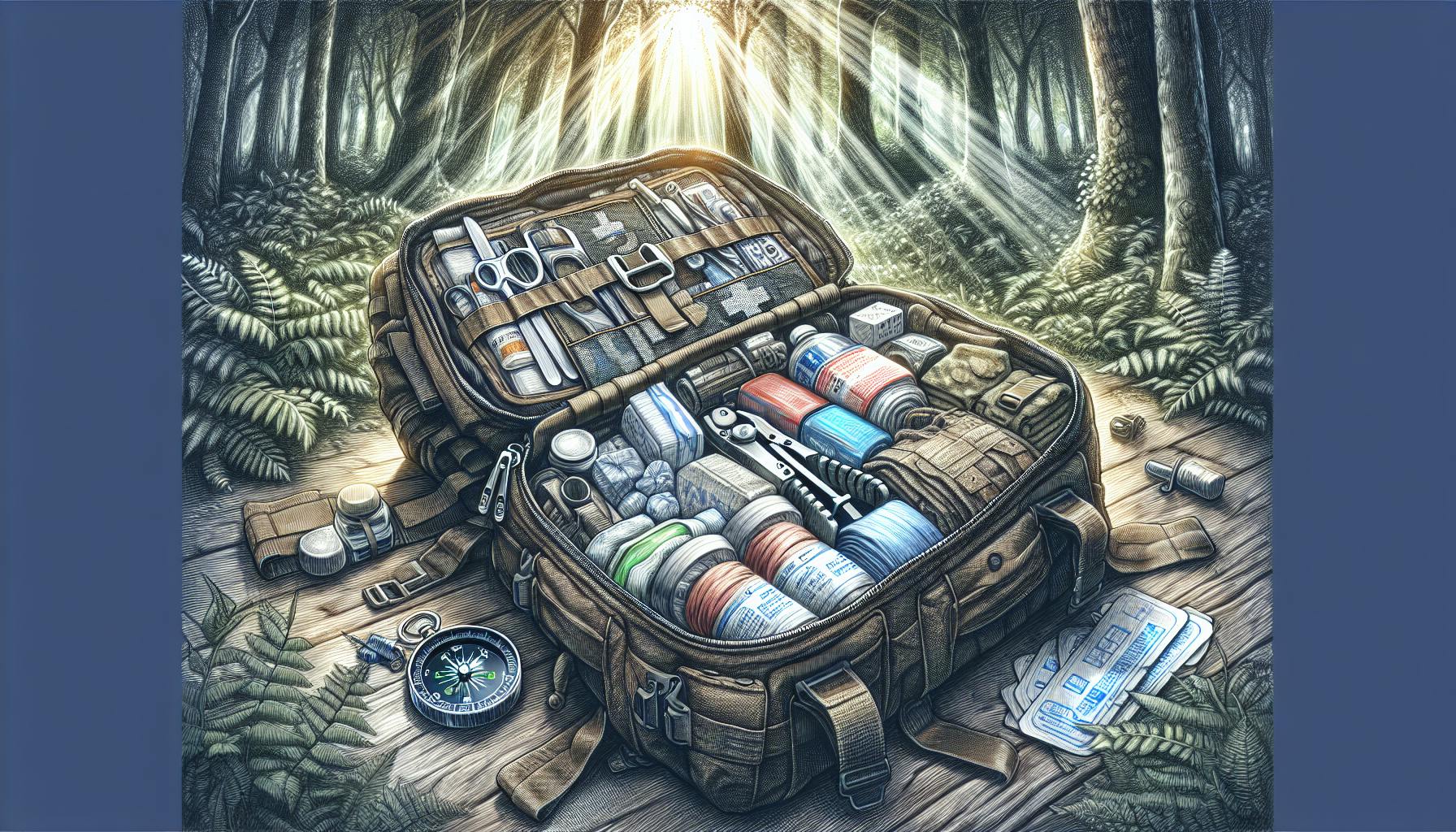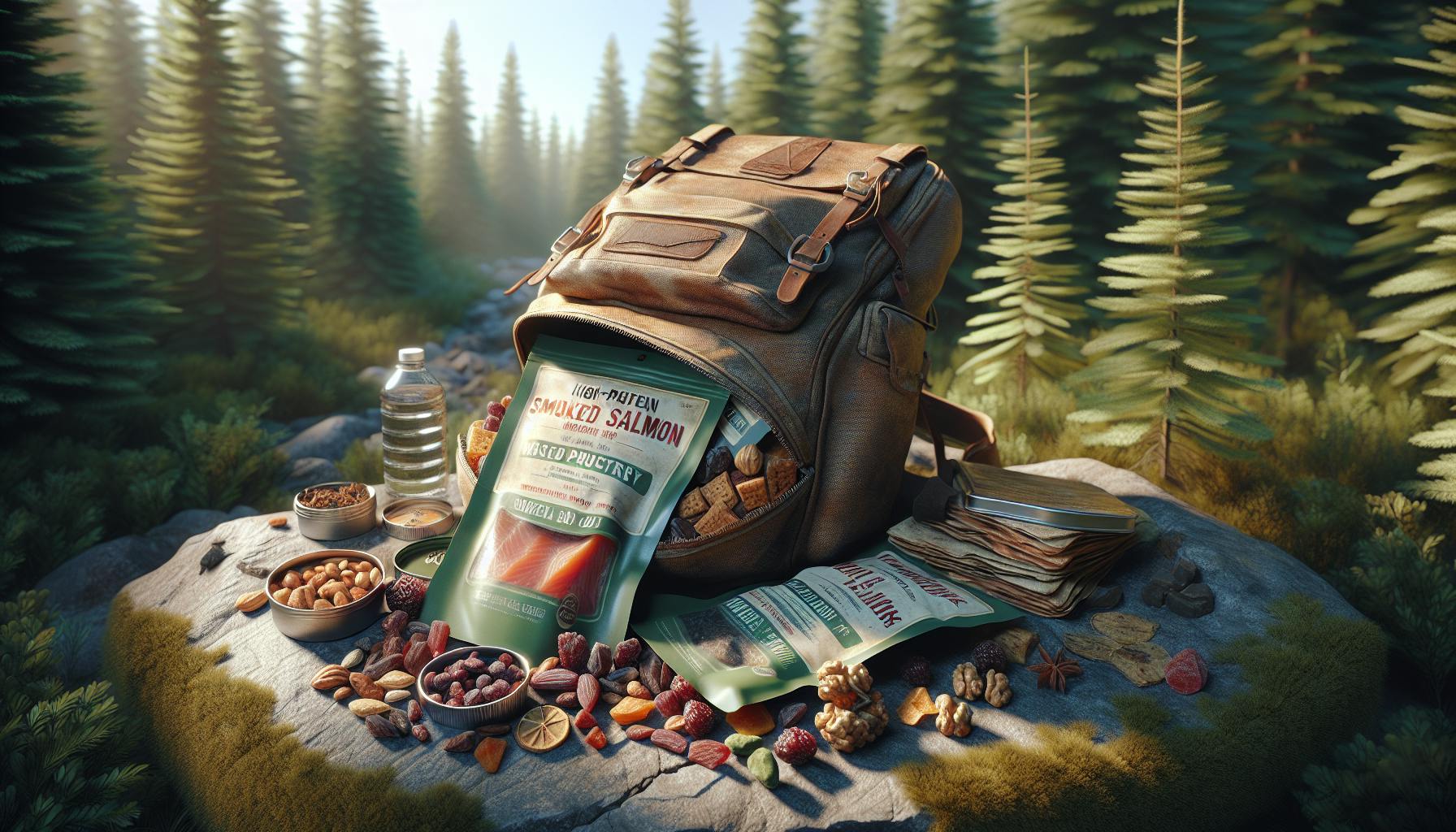Introduction to Canned Goods Prepping Essentials
Stockpiling canned goods is one of the smartest ways to prepare for emergencies when fresh food may be scarce. Canned foods are shelf-stable for years and provide essential nutrients when refrigeration and regular grocery shopping aren't possible. Unlike dehydrated foods or freeze-dried meals, canned goods do not require any extra steps like adding water. Their long shelf life and grab-and-go portability make canned foods ideal for emergency situations.
From canned fruits packed with vitamins to canned proteins like tuna and chicken, having a supply of canned goods is vital for survival readiness. This article from WeLovePrepping.com will cover the most critical canned foods to stockpile and why they are so important for emergency preparedness. You'll learn key tips on building your stockpile, proper storage, incorporating cans into meal plans, and budgeting for affordably acquiring goods over time. Supplementing with other survival foods and essential gear is also discussed.
Canned Fruits - Essential Nutrients and Fiber
Canned fruits like peaches, pears, pineapple and applesauce are rich sources of vitamins, minerals and plant fiber. Opt for fruits packed in juice rather than heavy syrup for better nutrition.🌟 Stock a variety - different fruits provide different benefits. Canned fruits are great for oatmeal, yogurt bowls and baking. Dole and Del Monte offer affordable, high quality canned fruits.
Canned Vegetables - Vitamins, Minerals and Fiber
Familiar vegetables like corn, peas, carrots and green beans are canned goods staples. Also consider unique options like beets, sauerkraut and roasted red peppers. Seek low sodium or no salt added varieties for stockpiling. Canned veggies are quick to prepare and easy to incorporate into dishes. Compare nutrition labels, as some offer more vitamins and minerals than others.🥕 Green Giant and Store Brand canned veggies provide good value.
Canned Beans and Legumes - Plant-Based Protein
Beans like kidney, black and chickpeas offer plant-based protein and fiber. Rinse canned beans to reduce sodium before use. Beans make nutritious and hearty additions to chili, hummus, soups and more. They help avoid protein deficiency in an emergency when meats are scarce.🍲 Bush's Best canned beans are affordable and widely available.
Canned Meat and Seafood - Animal-Based Protein
Canned tuna, salmon, chicken, turkey and ham provide animal protein options. Carefully inspect cans for damage before eating. Avoid bulging, leaking or heavily dented cans which can cause botulism risk. Choose products without bones, skin or discoloration. Meats work well in salads, sandwiches, pastas and as flavor boosters. Compare cost per ounce when buying.🐟
Canned Milk, Coconut, Condensed Milk
Canned milk is ready to consume unlike powdered milk requiring water. Evaporated and condensed varieties last unopened for years. Coconut milk provides healthy fats, calories and flavor for dishes. Use canned milk for drinking, cooking, baking and making instant puddings or desserts.🥥
Tips for Building Your Canned Goods Stockpile
Take an inventory before shopping trips to identify existing supplies. Gradually build your stockpile by purchasing extra canned goods each grocery trip. Acquire a wide variety - different types for balanced nutrition based on your household's preferences and needs. Consider baby food jars and pouches for little ones. Aim for at least a 3 month supply when starting out.
Setting an Expiration Timeline
Date cans as you purchase them and rotate stock using a "first in, first out" system. Consume within 1 year of purchase whenever possible. Some foods last 2-5 years if properly stored around 50-70°F with low humidity. Discard any bulging, leaking or heavily dented cans.
Finding Canned Goods Deals
Take advantage of sales, coupons and bulk case deals when stocking up. Warehouse stores like Costco offer lower unit pricing. Compare costs per ounce to find the best values. Consider affordable store-brand cans over pricier name brands. Check sites like CouponSherpa.com for online coupons and alerts on canned goods deals.
Proper Storage Conditions
Store cans in a cool, dry place away from direct sunlight and temperature extremes. Keep cans off concrete floors if possible. Wipe the tops clean before shelving to prevent rust rings. Ensure cans aren't exposed to flooding or water damage.
Food Safety Precautions
Clean the can rim and top before opening. Use a manual opener over electric. Never eat directly from the can after opening. Immediately transfer food to a plate or bowl. Discard unsealed or bulging cans which can cause botulism.
Creating Meal Plans
Map out recipes in advance using your canned goods inventory. Combine with pasta, rice and oats for well-rounded meals. Use canned meats and seafood to add flavor to dishes. Get creative with versatile canned foods!
Budgeting and Buying Canned Goods
Take advantage of sales, coupons and bulk case deals when stocking up. Warehouse stores offer lower unit pricing. Compare costs per ounce to find the best values. Consider affordable store-brand cans over pricier name brands. Buy extra cans on deep discount when possible.
Supplementing Your Stockpile with Related Shelf-Stable Items
Expand your emergency food supply by storing other shelf-stable items like dried beans, lentils, rice, oats, granola bars, cooking oil and spices. Vitamin supplements help fill nutritional gaps. Essential gear for cooking and serving meals is also key, along with alternative preservation methods like dehydrating, pressure canning and fermenting. Stock up on first aid supplies, hygiene items, pet food and other critical non-food essentials as well.
Essential Extras for Meal Preparation
Have a manual can opener, pots, pans, utensils, plates, bowls, cups, water, filtration and storage containers. Fuel for cooking like propane, charcoal or firewood is vital.
Food Preservation Alternatives
Consider dehydrating fruits and veggies, pressure canning soups and meats, and fermenting vegetables like sauerkraut to expand your stockpile variety.
Essential Non-Food Items
First aid kits, sanitation supplies, hygiene items, pet food, batteries, flashlights, matches, toilet paper, and medical prescriptions are critical too.
WeLovePrepping.com for All Your Canned Goods and Prepping Needs
WeLovePrepping.com offers a wide selection of canned goods, shelf-stable foods and expert prepping advice to help you prepare for emergencies. Take advantage of discounts and deals to stock up affordably. Get all your essentials for emergency preparedness at WeLovePrepping.com.
Conclusion
Stocking up on canned goods is a key part of any emergency preparedness plan. Follow the tips in this article from WeLovePrepping.com to build your stockpile with a variety of nutritious canned foods. Supplement with other survival necessities as well. Properly storing and rotating your supply ensures you'll have shelf-stable food and essential nutrition no matter the situation. With the right canned goods prepping, you'll be ready for any emergency that comes your way.


